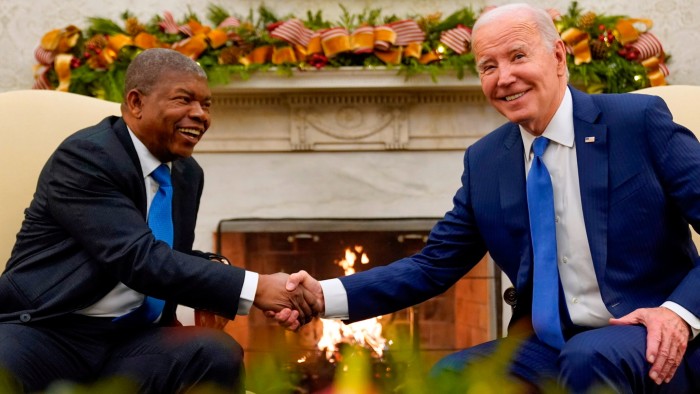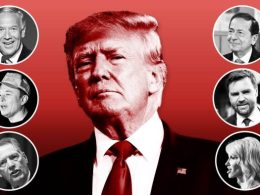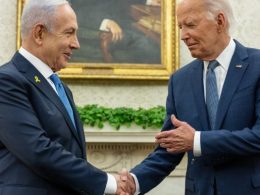Joe Biden will begin a two-day visit to Angola on Monday in his first — and last — trip to Africa as US president, as Luanda moves closer to Washington after decades of ties with Moscow and Beijing.
The meeting with his Angolan counterpart João Lourenço, originally planned for October as part of a pledge to visit Africa, comes only weeks before Donald Trump, who during his first term referred to African nations as “shithole countries”, returns to the White House.
The US has sought closer African ties after seeing other countries, including China, Russia and the Gulf states, seize commercial and strategic opportunities. But the visit will be overshadowed by concerns on the continent over whether the incoming Trump administration will tear up Biden’s reset of relations, observers say.
Peter Pham, who has been tipped as a possible assistant secretary of state for Africa in the Trump administration, said there could be significant continuity, though he expected the incoming president to demand greater “reciprocity” in trade and security relations and to be less indulgent with countries seen as antagonistic to US interests.
Amos Hochstein, a US envoy and close Biden adviser, recently complained Washington had not “even been competing” in Africa in much of the post-cold war period.
Biden’s choice of Angola as the sole African country to visit, over traditionally closer allies such as Kenya, underlines Washington’s changed priorities. The US has committed more than $3bn to develop the Lobito Corridor, a railway linking copper mining regions in the Democratic Republic of Congo with a port on Angola’s Atlantic coast.
“The Americans are throwing money and political patronage at countries like Angola under the guise of developmental projects — but this is about geopolitics,” said Ricardo Soares de Oliveira, professor of African politics at Oxford university.
After Angola gained independence in 1975, the US waged covert war in the country for nearly two decades. It was aligned with South Africa’s apartheid government in backing the rebel Unita group seeking to overthrow the Moscow-backed People’s Movement for the Liberation of Angola, the party that still holds power.
Hochstein, who is considered the mastermind behind Washington’s support for the Lobito project, said: “A year ago, we still had folks doubting whether or not the US could really rejuvenate investing in physical and rail infrastructure in Africa. Nobody believed it, because we hadn’t done it in a long time.”
Lobito is expected to cost at least $10bn in total with a planned extension to Zambia’s Copperbelt province, according to estimates from Angola’s transport minister Ricardo Viegas D’Abreu. It will incorporate investments by US companies in telecoms, bridges, agribusiness and 220MW of solar power backed by $900mn of financing from the US Eximbank.
“This is not pit to port. It’s an entire ecosystem,” said Judd Devermont, former senior director for African affairs at the National Security Council, who described Lobito as the “marquee programme” of Biden’s Africa policy.
Pham told the Financial Times: “Let’s be frank. It is about competition with China, but not exclusively about that.” He added Chinese domination of the supply chain in critical minerals such as copper did not serve US interests.
Manuel Domingos Augusto, Angola’s former foreign minister, said: “We are now friends with the Americans . . . but, in the end, it is about interests.”

Last week, Angola removed Alrosa, the world’s largest diamond miner, from its country because of sanctions on the Russian state-owned producer, a move interpreted as a friendly nod to the US.
António Cabral, chief executive of Benguela Railway, the company responsible for passenger trains on the Lobito Corridor, said: “Angola was once the best friend of the Russians, then we became the best friends of the Chinese and now of the Americans.”
But to counter Washington’s efforts in Africa, this year Beijing offered more than $1bn to modernise the Tazara railway line — built in the 1970s with Chinese help under Mao Zedong — that links Tanzania’s port at Dar es Salaam to Zambia’s copper region.
Devermont said the US had earned a lot of goodwill in Africa through initiatives such as a programme to supply antiretroviral products that is credited with saving millions of lives. Such efforts could be threatened if Trump revived the plans he aired in his first term to slash aid budgets to developing countries.
“My concern stems from what he said he wanted to do in the first term and wasn’t able to do because of guardrails,” Devermont said.
Pham hinted there could be a revaluation of health programmes, which he said sucked up large amounts of fixed expenditure that might be better deployed on strategic investments.
The African Growth and Opportunity Act, which offers tariff-free access to US markets, should only be extended to countries whose foreign policy stance was aligned with Washington’s, Pham said. Some countries such as South Africa had taken positions on Israel and Iran that run counter to Washington’s interests, he said.
But Pham rejected the idea that Trump ignored Africa, citing the move to double international development finance funds to $60bn in his first term. “Look beyond appearances to the substance,” he said.
Cartography by Steven Bernard
Source link









